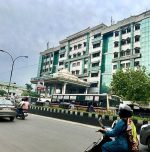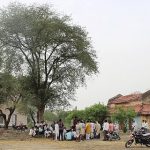Renewed call for central law to protect healthcare workers

In the wake of the tragic rape and murder of a trainee woman doctor in a West Bengal government hospital, healthcare professionals are renewing their demand for a central law to protect them.
Despite repeated calls, the central government has consistently denied the need for separate legislation to prohibit violence against doctors and healthcare workers.
For the past five years, the draft bill for protecting healthcare workers and hospitals has remained pending.
The government has clarified, both in and outside of parliament, that they are not pursuing the draft legislation.
The draft of the Healthcare Services Personnel and Clinical Establishments (Prohibition of Violence and Damage to Property) Bill, 2019 was circulated for consultations but has not advanced.
Former Union Health Minister Mansukh Mandaviya stated in a written reply to the Rajya Sabha in February 2023 that the government decided against enacting a separate law.
Instead, the matter was discussed with relevant ministries and stakeholders, leading to the Epidemic Diseases (Amendment) Ordinance, 2020, promulgated on April 22, 2020.
As protests intensified nationwide, resident doctors resumed their call for a central law, halting work to demand justice for the deceased trainee doctor.
A delegation from the Indian Medical Association (IMA), representing over 3.5 lakh senior doctors, met with Union Health Minister J.P. Nadda to press for the enactment of the long-pending legislation.
IMA National President Dr R.V. Asokan acknowledged the delay but emphasized the need to maintain pressure.
RTI activist Dr Babu expressed disappointment, noting that the government has shown little interest in pursuing the draft legislation, despite its importance in ensuring the safety of healthcare workers.
In response to a question from Congress MP Shashi Tharoor, Nadda informed the Lok Sabha that the recently enacted Bharatiya Nyaya Sanhita (BNS) and Bharatiya Nagrik Suraksha Sanhita (BNSS) contain provisions to protect medical professionals against violence.
During the COVID-19 pandemic, the centre passed the Epidemic Diseases (Amendment) Act, 2020, making acts of violence against healthcare workers non-bailable offences.
The law prescribes imprisonment for three months to seven years and fines ranging from ₹50,000 to ₹5,00,000, depending on the severity of the offence.
The law also mandates compensation to victims and twice the market value for damaged property. Despite these measures, the demand for a dedicated central law persists.
Image from Pxhere (Free for commercial use / CC0 Public Domain)
Image Published on March 01, 2017
You may also like
Image Reference: https://pxhere.com/en/photo/917209
Recent Posts
- NIRDPR announces faculty, staff vacancies in HyderabadInterested candidates can apply through the official portal before 08 March 2026.
- Telangana’s ₹6,000 crore salary surge sparks debateTelangana’s relatively strong economy has allowed timely salary disbursals.
- From kitchen wisdom to airport shelves: The rise of Mama NourishMama Nourish offers 12 variants, including a Mini Laddubar for post-meal cravings.
- NIRDPR announces faculty, staff vacancies in Hyderabad
What’s new at WeRIndia.com
News from 700+ sources
-
Acharya Balkrishna honoured with SFE Outstanding National Ethno-Pharmacologist Award
-
ICC delegation meets Parliamentary Committee on Official Languages
-
J&K media delegation visits Amul Dairy in Gujarat
-
ICAI organises seminar on Budget 2026, GST amendments
-
UCO Bank organizes coin, note exchange mela
-
GDP growth projected at 7.6 pc in FY26, 7.8 pc in Oct-Dec
-
WeRIndia – A News Aggregator
Visit werindia.com for all types of National | Business | World | Politics | Entertainment | Health related news and much more..










Leave a Reply